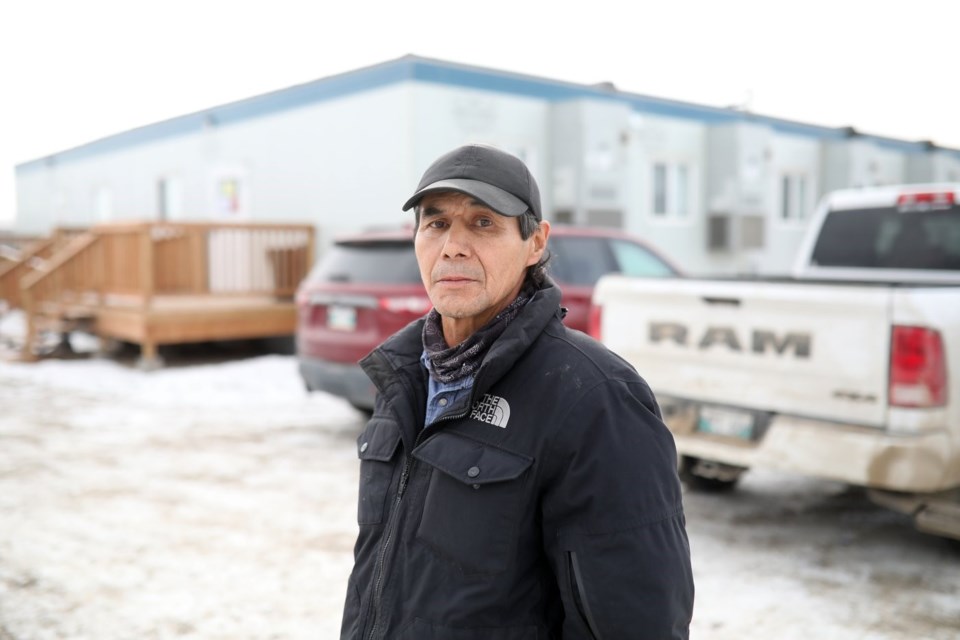AYWAYSEECAPPO FIRST NATION — Darrell Brandon, a grandfather at Waywaseecappo First Nation, hopes to draw attention to the high number of child apprehensions on his reserve with a walk to Erickson this week.
Brandon hasn’t seen his three grandchildren in more than a year, he said. They were taken from his daughter by West Region Child and Family Services. He also said women in situations involving domestic abuse are left without a home — the men get to stay in the home.
Women end up at extended family homes, which are already overcrowded and don’t meet child and family services standards.
He’s angry his First Nation has spent money on a slew of trailers to house the child and family services agency, rather than build more houses to help combat the poverty mothers suffer.
Brandon gave the Sun a tour of his house on the reserve, which was his grandmother’s. He said that by child and family services standards, his house is inadequate. Yet, he showed a bedroom he painted and prepared lovingly for his grandson. The walls are a freshly painted blue, to match the Spider-Man theme of the room. It’s a room any child would be happy to occupy.
In an extended conversation with the Sun, Brandon blamed the leadership, chief and council for the high rate of apprehensions on his reserve. He also blamed malicious calls. Three calls and you’re out, he said.
His greatest concern is that women at his reserve who need help aren’t getting it.
His concern is echoed by his niece, band councillor Chantel Wilson, who said funding dollars are triggered by apprehension of children rather than prevention. She also said malicious calls are a problem. And, she said, leadership, who often have no idea apprehensions are taking place, is not to blame.
“It’s not about leadership,” she said.
“Let’s focus on the facts. I, myself, have been a child of CFS. I know what it’s like. I feel like I was just a cheque for some people. Always bounced around from home to home. These children are being molested. They’re being … who knows.”
Wilson also said CFS agencies do not provide information to First Nations.
“They don’t give us the information about these children. These are our children. And we don’t even know where they are. You know why? Because the government did that. They seal those files, they lock those files, they block us from seeing it,” said Wilson.
She noted that band leadership is brought down by the existence of the system, as well, and she said there is very little actual investigation into circumstances.
“I’m tired of it. It comes from the top, and we’re at the very bottom.”
The scrutiny Indigenous mothers experience far surpasses the scrutiny non-Indigenous mothers experience.
“What needs to change is all of these policies, the way that the system is funded. They only give money to CFS if they apprehend children. It’s not even about the children. It’s just about ripping families apart. It’s the same as residential school. It’s the same as the ‘60s Scoop. It’s the same thing in a different form.”
There are roughly 11,000 Indigenous children in care in Manitoba.
Brandon said women need help.
“Every parent who has a child in the system should be able to see them,” he said.
Wilson said it’s wrong to keep children away from their families.




